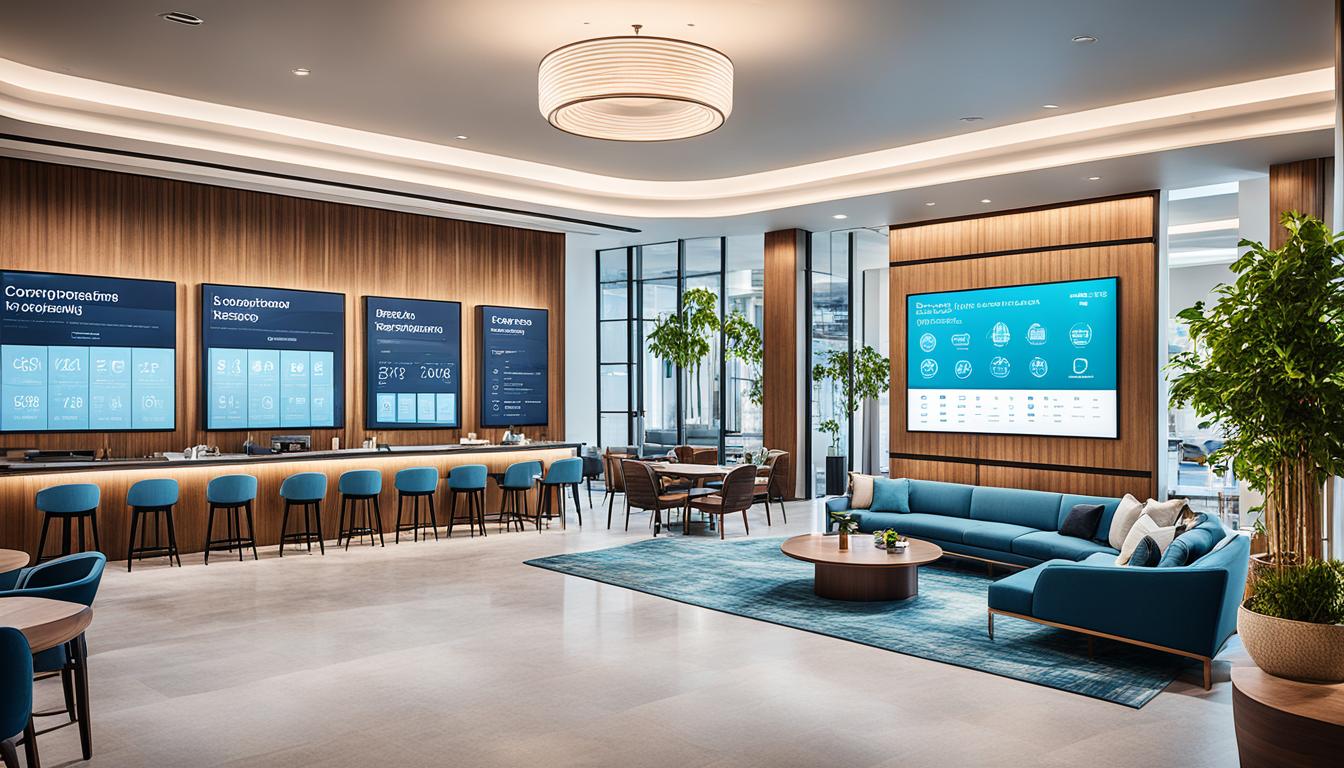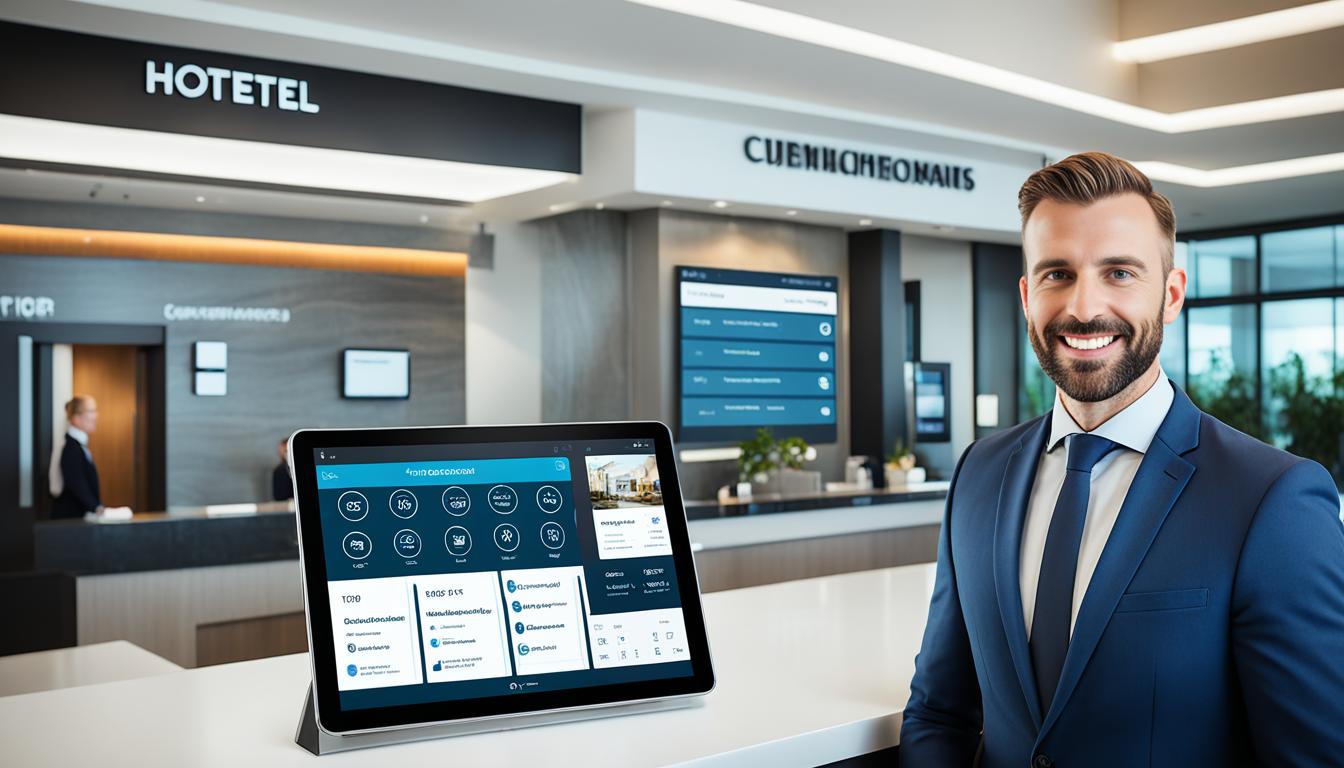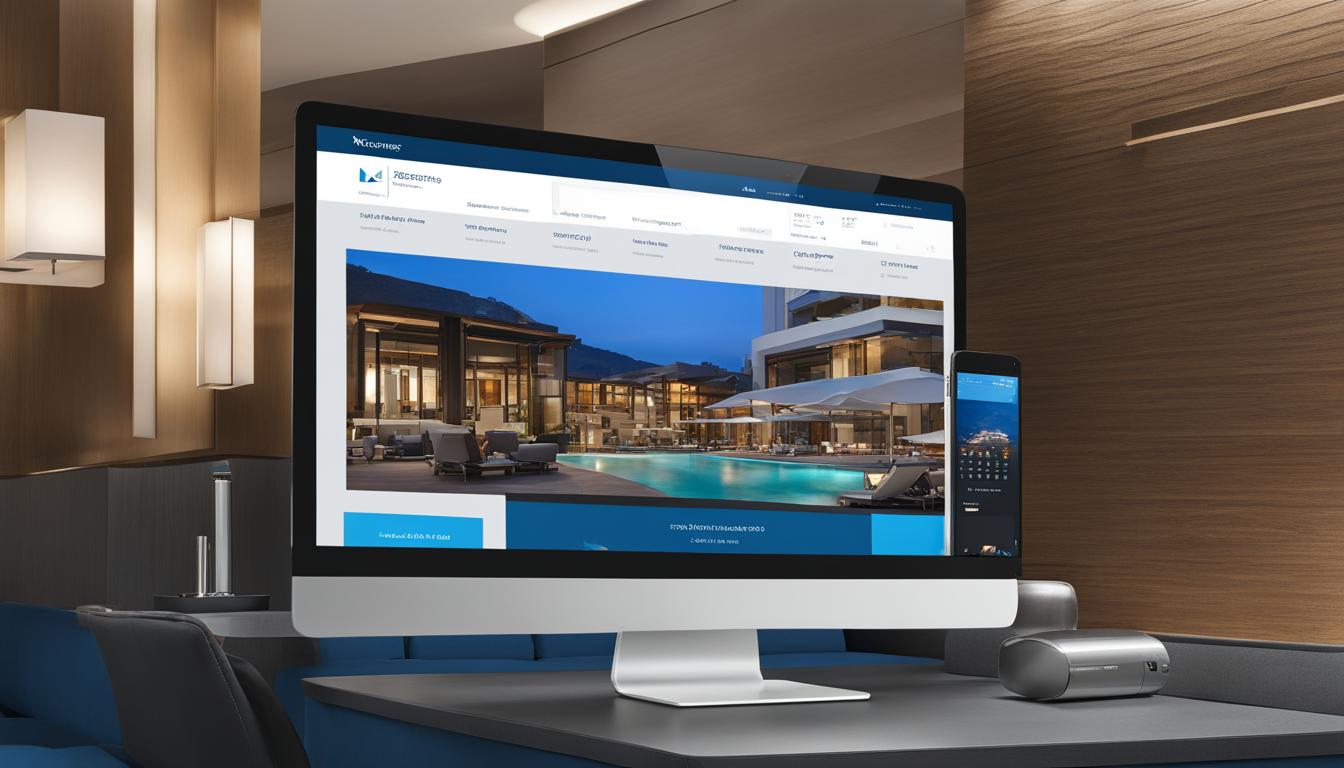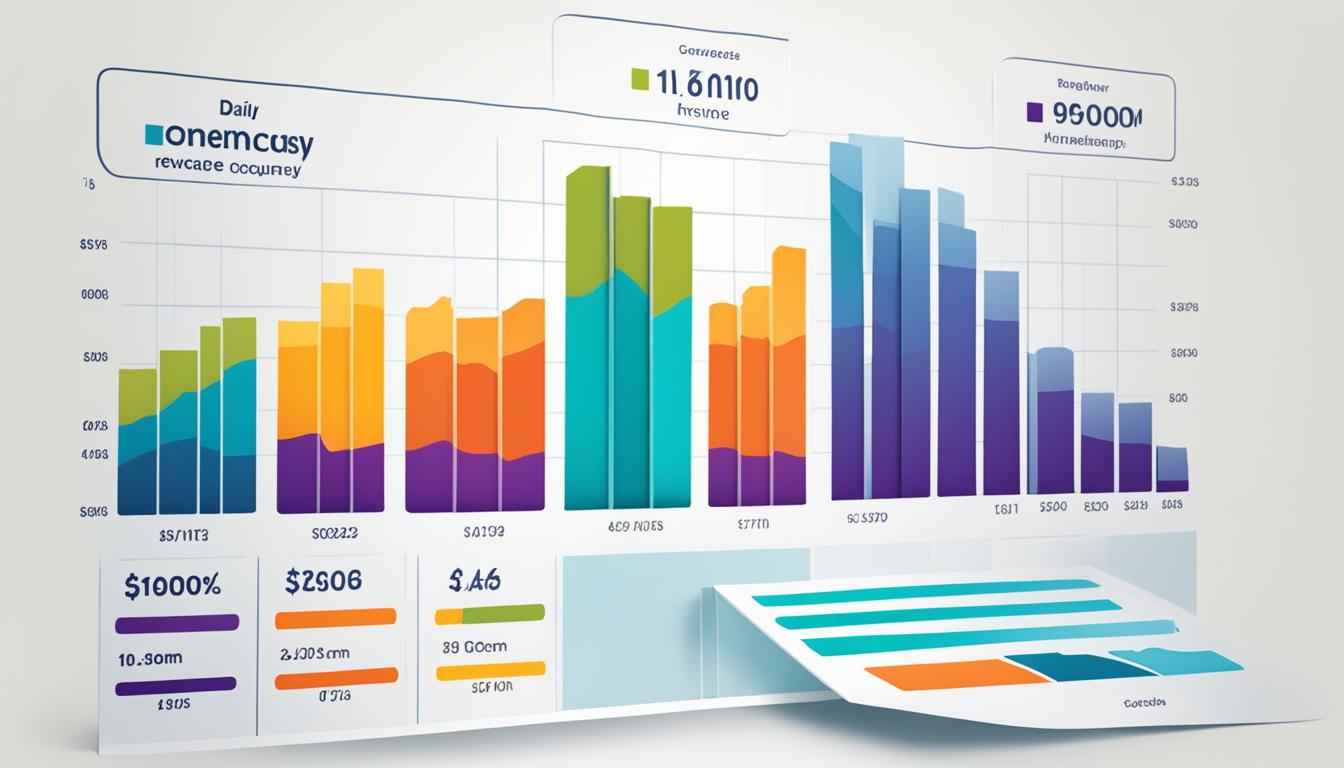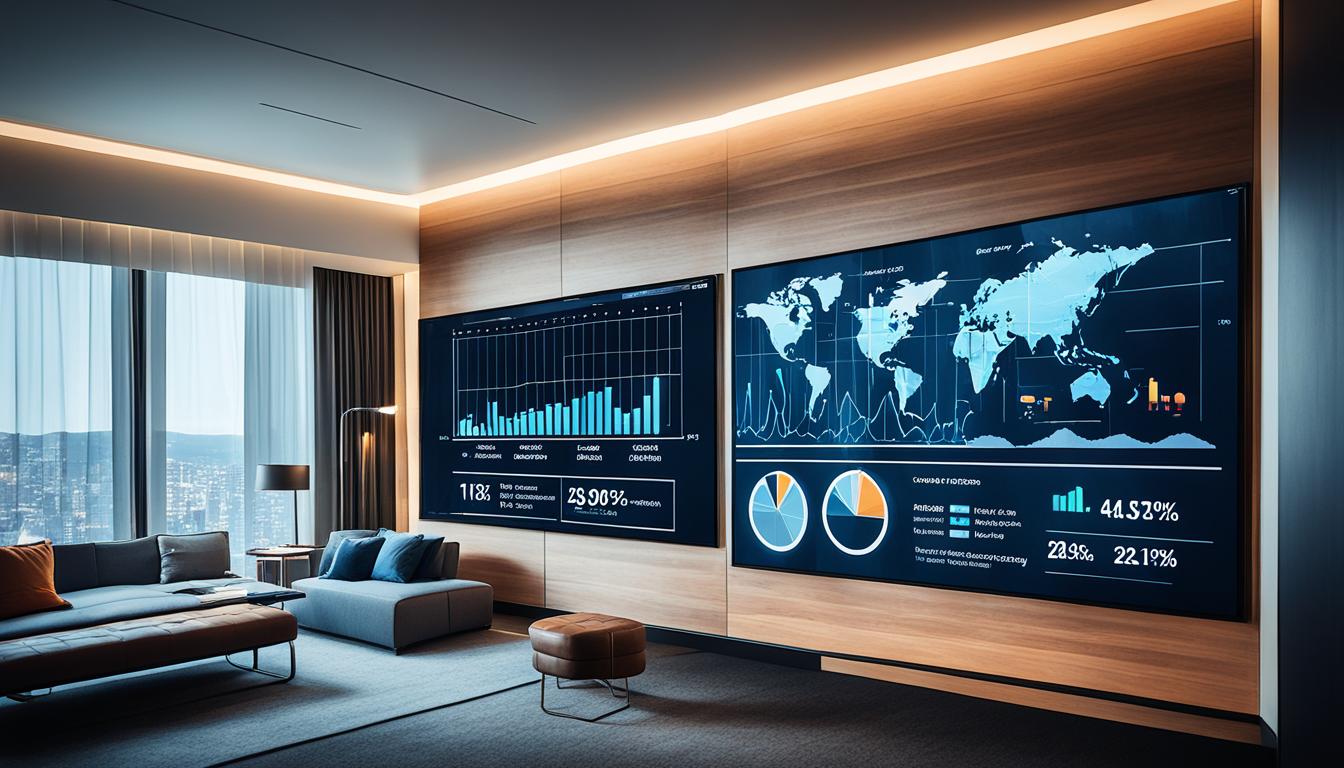Welcome to our article on maximizing Return on Investment (ROI) with hotel booking engine software. In today’s fast-paced industry, hoteliers need efficient and effective tools to streamline their operations and boost revenue. A hotel booking engine is a powerful solution that can help drive bookings, enhance guest experience, and increase profitability.
In this section, we will explore how utilizing a hotel booking engine can significantly enhance your ROI. We will discuss the importance of tracking key metrics and Key Performance Indicators (KPIs) to effectively manage your hotel and drive revenue growth.
By leveraging the right booking engine software, you can gain valuable insights into your hotel’s performance and make data-driven decisions to optimize revenue. Let’s dive into the world of hotel booking engines and discover the key metrics and KPIs that can propel your business forward.
Understanding the Hotel Booking Engine
When it comes to streamlining your hotel’s reservation process and driving bookings, a reliable hotel booking engine is crucial. In this section, we will explore the functionalities and benefits of a hotel booking engine, with a focus on the outstanding features offered by PlanetHMS booking engine.
PlanetHMS is renowned for its advanced technology and seamless user experience. With its intuitive interface and robust capabilities, this booking engine empowers hoteliers to effectively manage their properties and maximize revenue potential. Its user-friendly design ensures a smooth booking process for guests, enhancing the overall guest experience and increasing customer satisfaction.
What sets PlanetHMS apart as the best booking engine in the market are its key attributes:
Advanced Features:
PlanetHMS booking engine incorporates a wide range of advanced features, such as real-time availability, online payment processing, and integrated channel management. These features enable hoteliers to automate and optimize their operations, reducing manual effort and improving efficiency.
Customization Options:
With PlanetHMS booking engine, hotels have the flexibility to customize their online booking system according to their brand and specific requirements. From branding elements to room types and packages, hoteliers can tailor the booking engine to align with their unique identity and offerings.
Multi-Language and Currency Support:
PlanetHMS understands the global reach of the hospitality industry. Hence, their booking engine supports multiple languages and currencies, allowing hotels to cater to an international clientele and facilitate seamless bookings from around the world.
If you would like to learn more about the features and capabilities of the PlanetHMS booking engine, or have any inquiries, please don’t hesitate to reach out to us at [email protected].
Essential Metrics for Effective Management
As a hotelier, tracking essential metrics is crucial for effective management and maximizing the success of your property. By monitoring key performance indicators (KPIs), you can gather valuable insights into the performance of your hotel and make data-driven decisions to optimize revenue and enhance the guest experience.
One essential metric to track is the booking conversion rate, which measures the percentage of website visitors that convert into actual bookings. By analyzing this metric, you can identify areas of improvement in your booking process and implement strategies to increase conversions.
Your average daily rate (ADR) is another important metric to monitor. It calculates the average revenue earned per occupied room, providing insights into your pricing strategy and market competitiveness. By analyzing trends and comparing your ADR to industry benchmarks, you can make informed decisions about adjusting rates to optimize revenue.
Occupancy rate is a key metric that indicates the percentage of available rooms that are occupied within a given time period. This metric allows you to assess the demand for your hotel and make decisions about pricing, marketing efforts, and staffing levels. A high occupancy rate signifies strong performance and revenue potential.
Revenue per available room (RevPAR) is a metric that combines both ADR and occupancy rate to provide an overall view of your hotel’s financial performance. By monitoring RevPAR, you can evaluate the success of your pricing strategy and identify opportunities for growth. Increasing RevPAR indicates effective revenue management.
To visually illustrate the importance of these essential metrics, take a look at the following image:
By tracking these essential metrics, you can effectively manage your hotel and make informed decisions to drive revenue growth and enhance the guest experience. In the next section, we will explore the key performance indicators (KPIs) that are essential for revenue growth. Stay tuned!
Key Performance Indicators (KPIs) for Revenue Growth
When it comes to driving revenue growth in the hotel industry, implementing the right Key Performance Indicators (KPIs) is crucial. By tracking these KPIs, you can gain valuable insights into the performance of your hotel and identify areas for improvement.
One important KPI to monitor is direct bookings. This metric measures the percentage of bookings made directly through your hotel’s website or reservation system. By increasing direct bookings, you can reduce reliance on third-party online travel agencies and maximize revenue.
Another essential KPI is the performance of your online distribution channels. Tracking the effectiveness of each channel, such as OTAs (Online Travel Agencies) and metasearch engines, enables you to optimize your distribution strategy and allocate resources where they deliver the highest returns.
Customer satisfaction scores are also a key KPI to consider. By measuring guest satisfaction through surveys or online reviews, you can identify areas where improvements are needed to enhance the guest experience. Higher satisfaction levels can lead to positive word-of-mouth and repeat bookings.
Lastly, customer lifetime value (CLTV) is an essential KPI for revenue growth. CLTV measures the total revenue a customer generates throughout their relationship with your hotel. By focusing on increasing CLTV, such as through upselling or loyalty programs, you can drive repeat business and increase overall revenue.
By aligning your efforts with these KPIs and continuously tracking their progress, you can optimize revenue potential and achieve sustainable growth for your hotel.
Conclusion
In conclusion, implementing the PlanetHMS booking engine as your Hotel Booking Engine software is a strategic move to maximize your Return on Investment (ROI). By utilizing this advanced technology, you can effectively manage your properties and drive revenue growth.
Tracking key metrics and Key Performance Indicators (KPIs) is crucial for making data-driven decisions. Metrics such as booking conversion rates, average daily rate (ADR), occupancy rate, and revenue per available room (RevPAR) provide valuable insights into your hotel’s performance.
To further enhance revenue growth, it is essential to focus on key KPIs like direct bookings, online distribution channel performance, customer satisfaction scores, and customer lifetime value (CLTV). By aligning your efforts with these KPIs, you can identify areas of improvement and implement strategies to increase revenue.
If you have any specific questions or would like to learn more about how the PlanetHMS booking engine can benefit your hotel, please do not hesitate to contact us at [email protected]. Our team is ready to assist you in maximizing your revenue potential and achieving sustainable growth.

